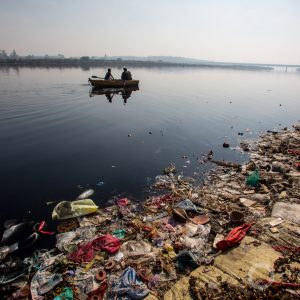The Stream, January 16: Israel, Palestine Will Cooperate On West Bank Water
The Global Rundown
Israel and Palestine agreed to resume work on a joint committee to address water problems in the West Bank. The U.S. Environmental Protection Agency said it is unable to pay compensation to businesses affected by the Gold King mine spill that polluted the Animas River. Continued fighting disrupted efforts to repair the main water source for Damascus, Syria. A new study quantified the growing amount of electronic waste that threatens the environment and public health in Asia. Officials in Delhi shut down two of the city’s water treatment plants due to high ammonia levels in the Yamuna River. Thailand’s disaster agency warned that more floods are likely during an unusually wet January.
“Signing the water agreement proves that you can reach agreements and understandings when you discuss matters in a substantive, bilateral manner that is clean of foreign considerations when it concerns matters of natural resources and other infrastructural issues that affect the entire population.” — Major-General Yoav (Poly) Mordechai of Israel, speaking on Sunday after Israel and Palestine agreed to restart a joint water committee to address shortages in the West Bank. (The Jerusalem Post)
By The Numbers
$1.2 billion Amount in damages claimed by businesses and individuals after a contractor working for the U.S. Environmental Protection Agency triggered a spill of toxic mine waste into Colorado’s Animas River in 2015. The EPA announced last Friday that it is legally unable to pay those claims. Reuters
40 people Number killed this month during extensive flooding in southern Thailand. The country’s rainy season usually ends in November, but more rain is on the way, officials said. Reuters
2 water treatment plants Number temporarily suspended over the weekend in Delhi after a leak shut down the channel that usually supplies them, forcing officials to instead use the Yamuna River as a source. High ammonia levels in the river, however, rendered that water unusable as well. The Hindu
Science, Studies, And Reports
The amount of phones, computers, and other electronic devices discarded in Asia grew 63 percent between 2010 and 2015, and doubled in China over the same time period, according to a study by United Nations University. The “e-waste” poses a significant risk to the environment and public health, the study said. Agence France-Presse
On The Radar
Efforts to resume water service to Damascus, the capital of Syria, are in jeopardy due to failed negotiations and intense fighting near the city’s primary water source, according to the Syrian Observatory for Human Rights. Water supplies were cut in late December, affecting an estimated 4 million people. Reuters
A news correspondent for Circle of Blue based out of Hawaii. She writes The Stream, Circle of Blue’s daily digest of international water news trends. Her interests include food security, ecology and the Great Lakes.
Contact Codi Kozacek





